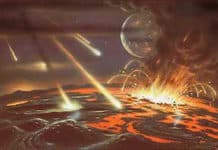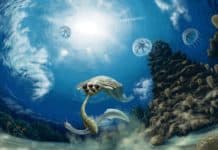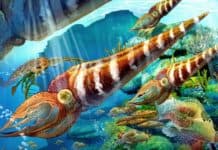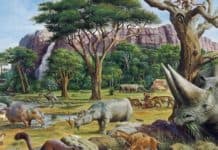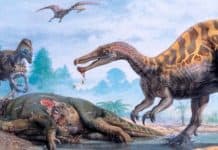Anyone who learns about dinosaurs can’t help but become fascinated with dinosaur extinction. After all, these magnificent and sometimes scary animals ruled the Earth for millions of years. They existed in the skies, on the ground and in the seas. Then they all mysteriously disappeared during one of the largest mass extinctions in history.
As mysterious as the disappearance of the dinosaurs is the list of animals that survived this cataclysmic event. Birds survived the event, as well as starfish and many forms of bivalves. Crocodiles, frogs and turtles also survived this event. Today, we are going to look into when this event occurred and some possible reasons that it may have occurred.
When Did The Dinosaurs Become Extinct?
Around sixty-five million years ago, the dinosaurs became extinct. At least, the dinosaurs that weren’t avian—or birds. This time, known as the Cretaceous–Paleogene extinction event, not only killed off the dinosaurs but also about seventy-five percent of all animal and plant species that existed. This disastrous event not only closed out the Cretaceous Period, but also marked the end of the Mesozoic Era. After the event, the Cenozoic Era began. This is the Era that continues to this day and the one in which we currently reside.
Why Did The Dinosaurs Become Extinct?
While it isn’t exactly known what happened to the dinosaurs, there are a couple of hypotheses that scientists often postulate to explain dinosaur extinction. One of the main theories—and the one that has the most support among scientists—is that an asteroid struck the Earth and caused the cataclysmic conditions that led to the death of the dinosaurs. Another theory postulates that there was increased volcanic activity that caused these adverse conditions. In either case, all of the debris that was put into the atmosphere, from either an asteroid strike or from increased volcanic activity, would have had enough of an effect to cause a situation known as a “nuclear winter”. A nuclear winter is when so much debris is propelled into the atmosphere, it forms clouds that block out the sun. This would prevent sunlight from reaching the Earth’s surface, disrupting photosynthesis and causing the food chain to eventually collapse.
Some scientists speculate that a combination of these two events may have contributed to the downfall of the dinosaurs. Increased volcanic activity may have destabilized the environment and the asteroid just pushed it further over the brink. Other scientists believe that changing climate may have contributed to the extinction of the dinosaurs. We may never know precisely what caused dinosaur extinction, but we do know one thing. It opened the door for mammals to fill the niche the dinosaurs once occupied and eventually led to the rise of mankind.
